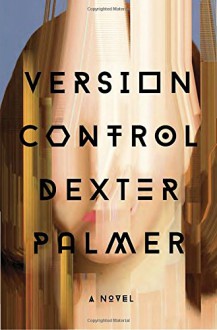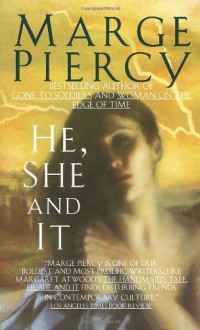
From the Tournament of Books longlist.
Some thoughts on this book are going to entail spoilers (which I'll mark), but I'll first say this was a unique story and point of view: a girl raised and schooled at home by her peculiar, computer scientist father in the '80s is forced from that bubble when he begins exhibiting signs of Alzheimer's. Some elements were a surprise, others predictable but mostly worthwhile anyway, as the father's identity comes into question and Ada, his daughter, seeks answers. The book is written in chunks, some taking place in the recent present, a bit in her father's past, a bit in the future, but mostly in the 1980s when Ada becomes a teenager.
Non-spoilery elements I enjoyed:
I liked Ada, named after Ada Lovelace, considered the first computer programmer, and Liston, her father's lab mate and later Ada's guardian. This novel acknowledges the role women play and have always played in computer science.
I liked how David's choices in raising Ada stem from the personal; in the beginning, before David's history is revealed, these choices could feel like poor ones, not abusive but perhaps selfish. Ada does not associate with peers; she has no friends and knows only adults that her father works with. She observes Liston's boys from afar and only learns of popular culture via Liston and other lab workers. Despite this, Ada still develops the insecurities that go with teenagehood, but on top of that she has insecurities about her insecurities, like she's letting her father down by wanting the things she wants because she should be above them.
My favorite moments in the story are when Ada first begins attending Catholic school after being unofficially homeschooled by David her whole life. Interacting with her father and adults at the lab, Ada is used to being treated as an adult herself, with worthwhile things to say and contribute to their research. On her first day of school, she's immediately assumed to be misbehaving or incapable. This says a lot about how we treat children in the education system, whether public or private. I wish we saw more of Ada at school and her transition to making friends. I also wonder how she did academically and what she thought of the work, given that she's likely operating at above grade level.
Non-spoilery elements I wasn't crazy about:
Liston's sons William and Matty felt somewhat generic as characters, fulfilling roles in Ada's growth, versus Gregory, who is fleshed out (though we don't see how exactly he becomes like his mother). Besides Liston, the other lab folk also feel indistinguishable until the end when a few are more strongly differentiated.
Though the mystery and reveal of David's identity is done well, at times it feels like there are too many pieces of the puzzle (the code, the locked filing cabinet, the computer program, the photos...).
Ada's one of those girls who is attractive, with multiple boys who are interested, but she's unaware of her appeal. It makes sense given her upbringing, but it's a familiar type that's come to drive me nuts. We need more Jane Eyres.
In terms of writing style, my one complaint is that sometimes the author tells you what she just showed you or repeats observations (e.g. David is Ada's whole world). She should trust her readers more.
SPOILERS below:
Returning to an item from above, the revelation of David's queerness and work history in government put his choices in raising Ada in much-needed context. His mistrust of authority, his emphasis on education and thinking for oneself, his near sequestering of Ada, all come to feel less like strictness and eccentricity and more like sane choices.
My biggest gripe is the last chapter and epilogue. The former reminds me of Harry Potter's epilogue where we're given a predictable Happily Ever After of the sort some readers like or require; I would have preferred the story end with the section in 2009. The latter is an unnecessary "twist" that suddenly puts the novel in SF territory; it reminded me of the end of the film A.I. Artificial Intelligence. I can guess the intent--another "child" brought up uniquely, an objective observer to give the story context (e.g. people make mistakes, hurt each other, etc.), but suddenly learning the story's been told by an A.I. is too much of a rug-puller. Still, it wasn't awful enough to sour my enjoyment of the rest.


 Log in with Facebook
Log in with Facebook 









